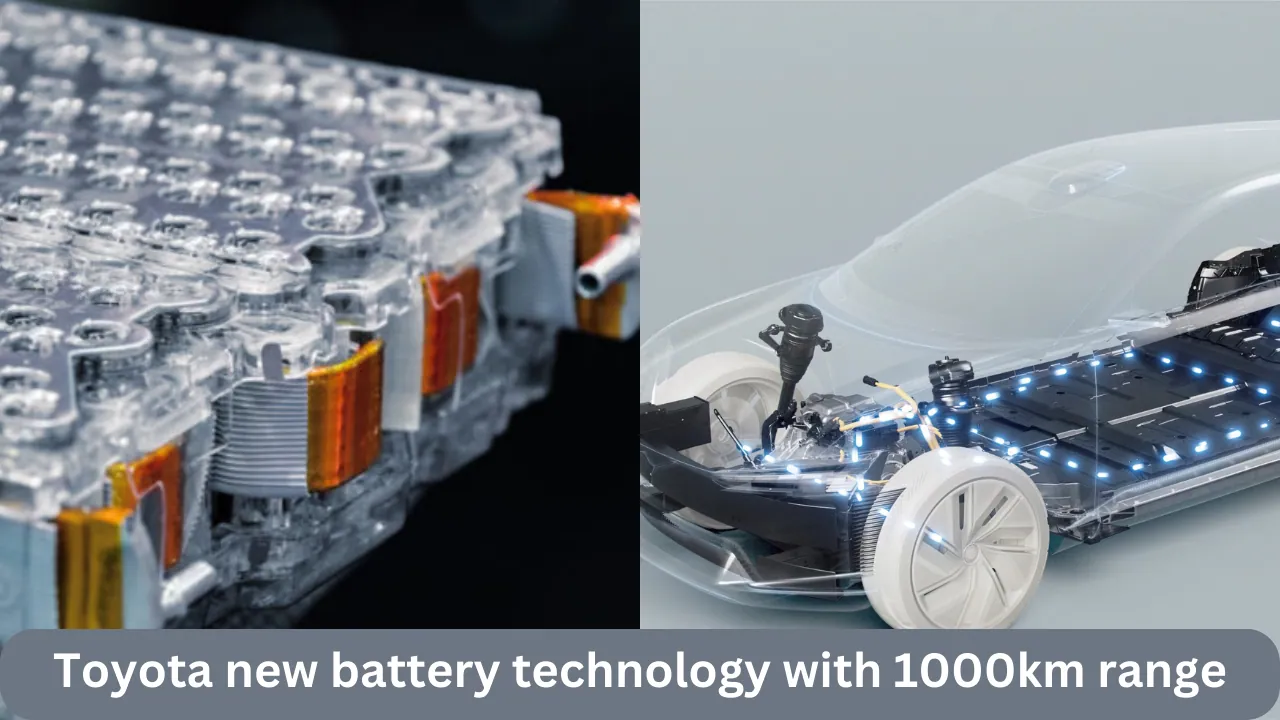In the ever-evolving landscape of electric vehicles (EVs), Toyota and its luxury division, Lexus, are gearing up for a groundbreaking entry into the market. While many competitors are opting for massive kilowatt-hour battery packs to boost range, Toyota and Lexus are taking a different approach, focusing on innovative technology and downsizing components. The star of the show is the Lexus LF-ZC Concept, set to debut in 2026, promising an impressive 620 miles of electric range without relying on oversized battery packs.
The Chemistry Behind the Mileage
Unlike some of its competitors, Toyota plans to achieve this remarkable range without resorting to huge, heavy battery packs. Instead, the key lies in advanced chemistry. The LF-ZC is set to feature an 80-kilowatt-hour battery, significantly smaller than the colossal 200-kilowatt-hour battery found in some other EVs. Toyota believes that adding more batteries to increase range, making the vehicle heavier and more expensive, is not the solution. Instead, they are focusing on optimizing the chemistry of their batteries for efficiency and sustainability.
Looking Beyond the Numbers
The debate over whether drivers truly need a 620-mile range is ongoing, especially considering that the average American only travels about 40 miles a day. However, the push for greater range is not just about the numbers; it’s about efficiency, sustainability, and environmental impact. Larger EV batteries require more resources to produce and more energy to charge, making them less efficient and environmentally friendly. Toyota’s approach aims to balance range with practicality, ensuring that EVs remain a viable and sustainable choice for consumers.
Toyota’s Vision for the Future
Toyota has unveiled its battery development strategy, showcasing their current lithium-ion batteries as a benchmark. However, the company is actively working on next-generation prismatic “performance” lithium-ion batteries, set to launch in 2026. These batteries promise twice the range of their predecessors, a 20% cost reduction, and incredibly fast charging times. Furthermore, Toyota is exploring the use of lithium-iron-phosphate (LFP) cells, making EVs more affordable without compromising range or charging speed.
The Road to Solid-State Batteries
Toyota’s ultimate goal is solid-state batteries, a technology that could revolutionize the EV industry. Solid-state batteries offer 20% better range than the “performance” lithium-ion batteries and boast rapid charging in just 10 minutes. While this technology is still in development, Toyota is determined to bring it to commercial use by 2027 or 2028. These advancements highlight Toyota’s commitment to staying at the forefront of EV innovation.
Beyond Batteries: Redesigning the EV
Beyond groundbreaking battery technology, Toyota is also focusing on redesigning essential components of their EVs. The LF-ZC’s sedan design was a deliberate choice, challenging engineers to think creatively within strict packaging constraints. By minimizing core components, including the steering system and HVAC unit, Toyota aims to create more interior space, accommodating flatter, thinner batteries with higher energy density. Additionally, the use of gigacasting and self-driving technology in the assembly line ensures faster and leaner production, marking a significant step forward for Toyota in the EV race.
In conclusion, Toyota and Lexus are redefining the future of electric vehicles by prioritizing innovation, efficiency, and sustainability. With their unique approach to battery technology and vehicle design, they are poised to make a significant impact on the EV market. As the automotive industry continues to evolve, Toyota’s commitment to pushing boundaries and embracing change sets them apart as pioneers in the electric vehicle revolution.
Q1: Are large batteries necessary for impressive EV range?
Ans: Yes, they can offer extended mileage, but Toyota proves that innovative engineering and chemistry can achieve exceptional range without massive batteries.
Q2: When will Toyota launch its advanced “performance” lithium-ion batteries?
Ans: Toyota plans to launch these batteries in 2026, heralding a new era of efficient and high-performance electric vehicles.
Q3: What makes solid-state batteries revolutionary?
Ans: Solid-state batteries promise faster charging and better range. Toyota aims to commercialize them by 2027 or 2028, revolutionizing the EV landscape.
Q4: How does minimizing components enhance EV efficiency?
Ans: By reducing the size of core components, engineers can create space for compact, energy-dense batteries, ensuring both efficiency and impressive mileage.
Q5: Will Toyota keep up with the evolving EV market?
Ans: Absolutely. Toyota’s swift advancements, epitomized by the LF-ZC Concept, showcase their determination to keep pace with the dynamic and ever-changing world of electric vehicles.
